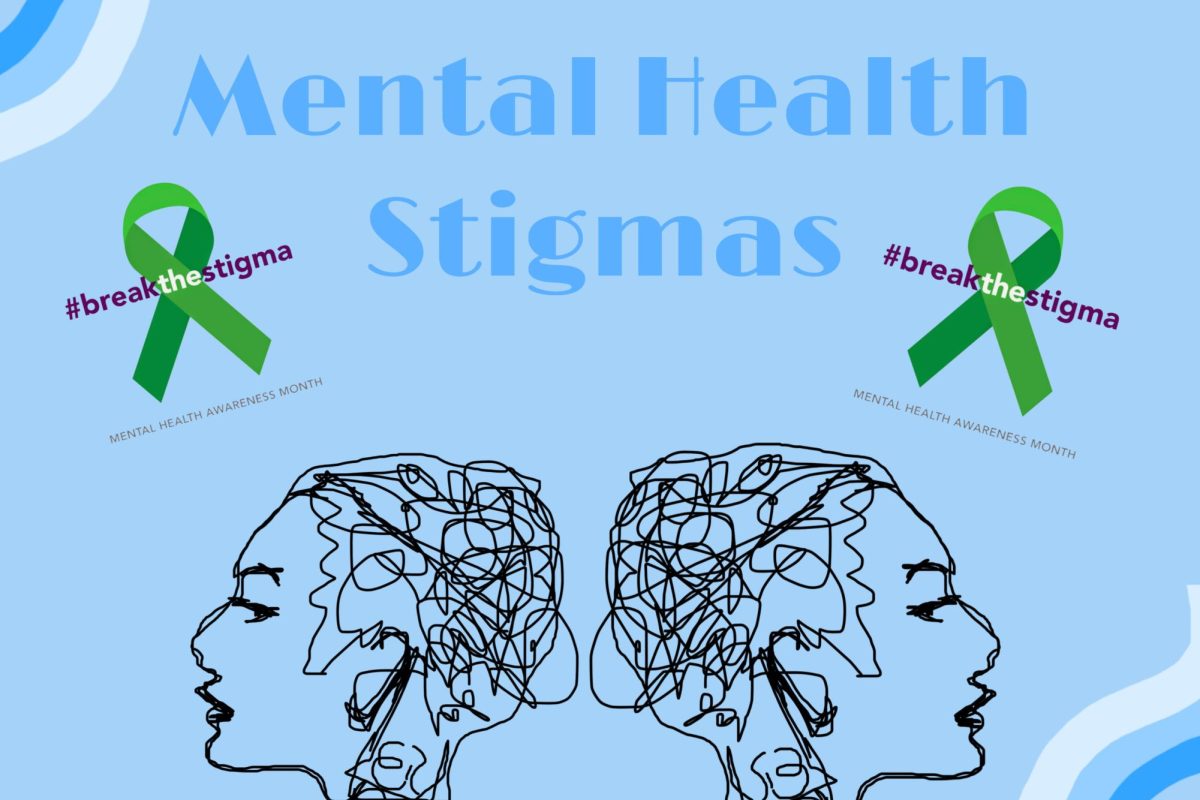Mental health is known for being the foundation for emotions, self-esteem, resilience, and thinking in humans. It is a key to personal and emotional well-being and can greatly impact a community. Odds are anyone can experience any mental illness in their life, whether it be a form of anxiety, depression, or bipolar disorder. Although mental disorders are nothing one should be ashamed of having, lately, there have been issues revolving around mental health that show how others view it in humans who suffer from illnesses.
In recent times, mental health disorders have become a major struggle in the lives of everyday people. According to the article, “Mental Health Myths: Stop the Stigma” by the American Academy of Family Physicians, “One out of every five people will experience a mental health illness in a given year.”
Even though mental illness disorders have become more common in society over the past couple of decades, not everyone has shown to have a clear understanding of a variety of mental conditions. While this is normal, when those who do not understand mental health disorders encounter those who are diagnosed with these disorders, it can lead them to spread inaccurate beliefs about the mental illness they are diagnosed with. As a result, those who have illnesses are often treated disrespectfully and can be mentally hurt by the lack of knowledge.
Catherine Sandomirsky, a psychologist for the Huntington Beach City School District said, “A public stigma that can occur is a negative attitude or prejudice the public may have towards an individual who is experiencing challenges with their mental health.”
The article, “Debunking Common Myths About Mental Health” by Joe Grasso, senior director of Workforce Transformation as well as the American Academy of Family Physicians, explained some of the myths spread by those who do not understand mental illnesses. Grasso said, “Four main stigmas about mental illnesses are titled as mental illnesses are weaknesses, those with mental health conditions can not be successful, treatments for mental illnesses don’t work, and people with mental disorders are dangerous.”
Along with the myths and stigmas that can affect one struggling with mental conditions, another serious issue that comes along with the misunderstanding of mental health is bullying. Some forms of this include verbal, social/relational, and cyberbullying.
“The negative attitude can lead to unhealthy labeling (e.g. weak or lazy) and potentially discriminatory actions based on that labeling [of the diagnosed],” Sandomirsky said.
As a result of the misbeliefs, those who suffer from mental illnesses tend to believe the tips and solutions recommended for their illnesses are unnecessary for their well-being and can be self-isolated as a result. Their isolation can then lead to little communication with family members and peers, which can prevent them from seeking help for their condition. However, the emergence of solutions and tips for self-care show that it is not normal to struggle, especially with mental health. Those who suffer from anxiety or depression can find ways to practice self-care as a way to relieve their struggles.
Here are some procedures for how one can establish ways to support themselves and others who struggle with mental illness:
Talking to a Therapist
While some misinterpret therapy as a waste of time, it is one of the top mental illness support services. Talking with someone who has a strong knowledge and experience dealing with mental disorders can be extremely beneficial, rather than keeping everything pent up inside.
Katherine VanHeerden, a licensed marriage and family therapist for Insightful Matters in Huntington Beach, said, “When clients see [her], [she] uses a combination of modalities to help decrease their symptoms including Dialectical Behavior Therapy (DBT), Cognitive behavioral therapy (CBT), strength-based, and mindfulness training.”
Establishing Healthy Habits
One of the essential sources to reduce mental illnesses is to do something you know will put you in a positive environment. This can be finding ways to reduce stress, surrounding yourself with loved ones, and following a healthy diet. Finding something you enjoy that is also healthy for you can help lift your mood, allowing you to better balance your mental health.
Raising Mental Health Awareness
Speaking out about mental health in your community is essential because it helps people gain knowledge of their conditions. This can happen by promoting it at events, sharing visual infographics, or finding facilities that service mental health for close ones struggling. Spreading awareness of the well-being of humans is important to society for those to recognize the types of illnesses as well as the strategies and tips for their wellness.
While the myths and stigmas that have surrounded mental disorders have caused a greater struggle for those diagnosed, it is important to know that anyone can battle any mental health issue at any time in their life. Although hearing these stigmas can cause suffering, acknowledging that these illnesses are common is an important step in destigmatizing mental health issues. Practicing self-care and seeking resources like therapy can be beneficial to combating mental health issues—no one should feel alone when struggling.








